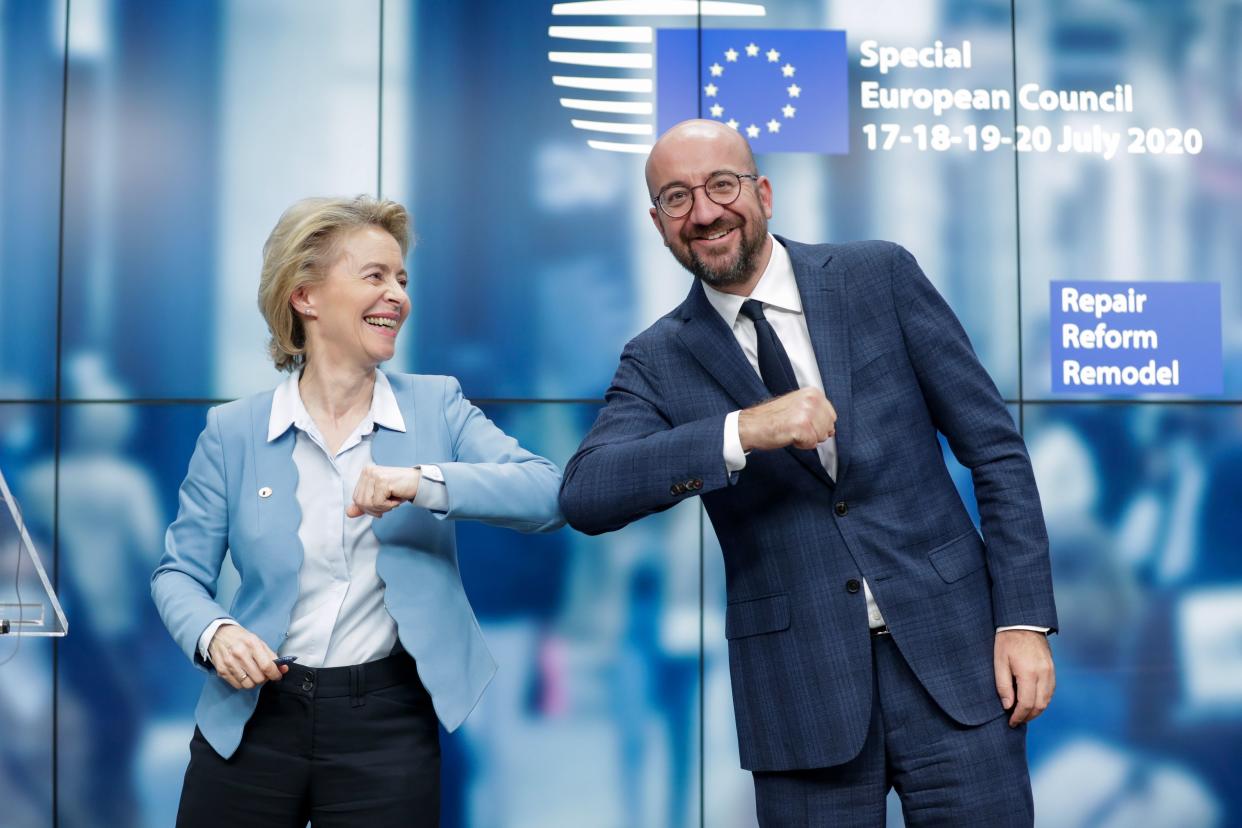Coronavirus: EU agrees on 'historic' €750bn recovery package

After almost five days of intensive wrangling, the leaders of the 27 EU member states finally reached an agreement on the of €750bn (£676bn, $859bn) stimulus package to help the European Union get back on its feet economically after the devastating coronavirus pandemic. The leaders also signed off on a seven-year budget for the bloc of over €1tn.
European Council president Charles Michel, who moderated the high-tension summit, tweeted “Deal!” at 5:30am on Tuesday morning.
"This is a good deal, this is a strong deal and most importantly this is the right deal for Europe right now," Michel said in a follow-up tweet. "I believe this agreement will be seen as a pivotal moment for Europe's journey."
German chancellor Angela Merkel said on Tuesday morning that she was “very relieved” that the EU leaders were able to cooperate. “We have come up with a response to the biggest crisis the EU has faced,” she said.
News that leaders had reached the deal, which still requires EU parliament approval, pushed the euro to a four-month high.
European Commission president Ursula von der Leyen hailed the deal as “a historic step we can be proud of” and thanked Merkel for steering the talks towards a solution.
In the weeks leading up to the summit, Merkel and French leader Emmanuel Macron had teamed up to push for a €750bn package, €500bn of which they said should be non-repayable grants for member states in need.
However, Austria, the Netherlands, Sweden, and Denmark, aka the “frugal four,” argued hard against funding the package via joint borrowing and demanded that strict conditions be tied to grants. They managed to get some movement in their direction however: the final deal allocates €360bn as loans, and €390bn as non-repayable grants.
It was the first time that Germany has backed EU states taking on joint debt to finance the rescue.
Negotiations got personal over the weekend in Brussels as tempers frayed. Macron at one point reportedly accused Austria’s Sebastian Kurz of lacking respect for leaving the room to take a call. He also accused the frugal four of being obstructive and “replacing the UK at the table.”

 Yahoo Movies
Yahoo Movies 
